AACR honors elite group with scientific achievement awards and lectureships
The AACR honored the following cancer researchers, physician-scientists, advocates, and policymakers for their achievements during the Annual Meeting.
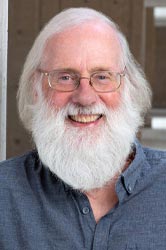
AACR Award for Lifetime Achievement in Cancer Research
Tony Hunter, PhD, FAACR
This award was established to honor individuals who have made significant fundamental contributions to cancer research, either through a single scientific discovery or a collective body of work. These contributions, whether in research, leadership, or mentorship, must have had a lasting impact on the cancer field and must have demonstrated a lifetime commitment to progress against cancer.
Hunter is being honored for his seminal discovery of tyrosine kinases and tyrosine phosphorylation of proteins that illuminated fundamental processes of cellular signaling and enabled the development of cancer therapeutics targeting these kinases. His basic biomedical research targeting tyrosine kinases has successfully been translated to over 60 tyrosine kinase inhibitors, clinically approved to treat and manage a multitude of cancers and other diseases.

AACR Award for Outstanding Achievement in Basic Cancer Research
Christina Curtis, PhD, MSc
This award recognizes an early-career investigator for meritorious achievements in basic cancer research.
Curtis is being honored for her paradigm-shifting research, including her established Big Bang model that has explained how treatment-naïve cancers evolve in the absence of therapeutic influence. This fundamental milestone in cancer research has been further developed to explain the tendency that some cancers have to disseminate and metastasize, in turn improving the predictive power of emergent diagnostic approaches for early cancer and pre-cancer detection.
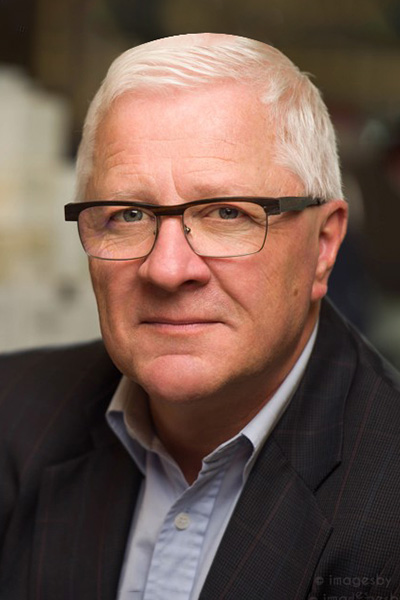
AACR Award for Outstanding Achievement in Blood Cancer Research
John E. Dick, PhD, FRS, FRSC, FAACR
This award recognizes an individual on the basis of their meritorious achievements and contributions to any aspect of blood cancer research.
Dick is being honored for his groundbreaking discovery of leukemic stem cells and for developing the first hematopoietic xenograft assay using human hematopoietic cells transplanted into immune-compromised mice, a technique that has become the gold-standard hematopoietic stem cell assay. His discovery of a leukemia stemness gene signature has since been used to predict survival rates and response to treatment and lays the groundwork for identifying actionable targets for drug development.
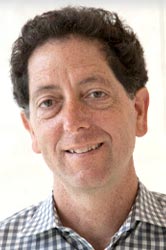
AACR Award for Outstanding Achievement in Chemistry in Cancer Research
Kevan M. Shokat, PhD
This award is presented for outstanding, novel, and significant chemistry research that has led to important contributions in basic cancer research, translational cancer research, cancer diagnosis, the prevention of cancer, or the treatment of patients with cancer.
Shokat is being honored for his seminal discoveries in the field of chemical genetics, solving the fundamental selectivity challenge for protein kinases by engineering a unique ATP binding pocket and matched chemical inhibitor to exploit and selectively target individual protein kinases. His breakthrough discoveries include the development of the first covalent inhibitors of KRAS G12C leading to clinical trials to target a once thought undruggable oncogene.

AACR Daniel D. Von Hoff Award for Outstanding Contributions to Education and Training in Cancer Research
Lee M. Ellis, MD
This award recognizes individuals who have made significant contributions to the education and training of cancer scientists and physicians at any career level and in any area of cancer research.
Ellis is being honored for his pioneering research on the biology and therapy of metastatic colorectal cancer and for identifying VEGF as an important mediator of colorectal cancer angiogenesis, growth, and survival and a valid therapeutic target that is now standard of care for patients with such malignancies. Importantly, during his illustrious career, he has played a critical role in the training and education of a multitude of clinical fellows, laboratory investigators, clinical investigators, and junior faculty.
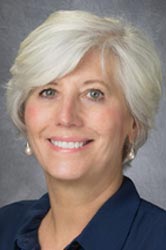
AACR Distinguished Lectureship in Breast Cancer Research
Helen M. Piwnica-Worms, PhD
This lectureship recognizes an outstanding scientist whose work has inspired or has the potential to inspire new perspectives on the etiology, diagnosis, treatment, or prevention of breast cancer.
Piwnica-Worms is being honored for her groundbreaking studies elucidating the function and regulation of proteins involved in cell cycle and checkpoint control, for discovering mutations and epigenetic modifications with functional significance to the development and progression of invasive triple negative breast cancer (TNBC), and for identifying, characterizing, and targeting tumor cells in treatment-naïve TNBC resistant to front-line chemotherapy and BRCA1/2 mutant tumors resistant to PARP inhibitors. Her landmark textbook discoveries enlist the identification of Wee1, a dual specific kinase that directly phosphorylates and inhibits Cdc2, Cdc25C, a dual-specificity phosphatase that dephosphorylates and activates Cdc2 and a novel pathway involving 14-3-3 proteins that prevents the nuclear accumulation of Cdc25C during DNA damage.

AACR Distinguished Lectureship on the Science of Cancer Health Disparities
Graham A. Colditz, MD, DrPH, MPH
This lectureship recognizes an investigator whose novel and significant work has had or may have a far-reaching impact on the etiology, detection, diagnosis, treatment, or prevention of cancer health disparities.
Colditz is being honored for his seminal contribution to the field of cancer epidemiology and prevention, his efforts in eliminating health disparities, and his scientific investigations revealing increased risk of receptor negative, aggressive subtypes of breast cancer and excess risk in breast cancer in young African American women. With remarkable leadership, he has spearheaded programs in colorectal and lung cancer screening and implementation science.
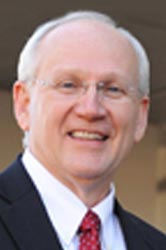
AACR Distinguished Service Award
Raymond N. DuBois, MD, PhD, FAACR
This award recognizes an individual in any sector whose extraordinary work has exemplified the AACR’s mission to prevent and cure cancer through research, education, communication, collaboration, science policy, advocacy, and funding.
DuBois is being honored for elucidating the role of cyclooxygenase 2 (COX-2) in colon cancer and the contributions of the lipid metabolite prostaglandin E2 (PGE2) to tissue inflammation in the etiology of colon cancer. His ground-breaking work led to the discovery of a COX-2 inhibitor that reduces polyp formation in patients with familial adenomatous polyposis. Collectively, he is recognized for his significant contributions to not only the cancer field at large but also the AACR, including his past AACR presidency, work as editor-in-chief of the Cancer Prevention Research journal, and his service as president and chair of the AACR Foundation Board of Trustees.
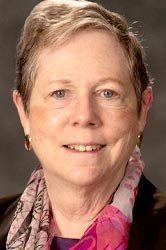
AACR James S. Ewing-Thelma B. Dunn Award for Outstanding Achievement in Pathology in Cancer Research Lecture
Elaine S. Jaffe, MD
This award recognizes pathologists who have significantly contributed to advancing cancer research, diagnosis, treatment, and prevention and serves to underscore the AACR’s ongoing commitment to the growth and support of pathologists worldwide who are engaged in basic, translational, and clinical cancer research.
Jaffe is being honored for her groundbreaking modern approaches to the classification of lymphoid system neoplasms. An astute diagnostician, her clinical and investigational studies have been intertwined to enhance our understanding of tumors of the immune system by revolutionizing the integration of traditional pathological methods with immunologic and genomic approaches, and describing multiple new disease entities that have resulted in pivotal changes to clinical practice and patient management.
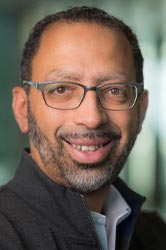
AACR Margaret Foti Award for Leadership and Extraordinary Achievements in Cancer Research
Levi A. Garraway, MD, PhD, FAACR
This award recognizes a true champion of cancer research whose leadership and extraordinary achievements in cancer research have had a major impact on the field. Such achievements may include contributions to the acceleration of progress against cancer, raising national or international awareness of the importance of cancer research, or other ways of demonstrating a sustained extraordinary commitment to cancer research.
Garraway is being honored for her pioneering and championing the application of genomics to cancer research, diagnosis, drug development, and treatment; including landmark discoveries that defined mechanisms of tumorigenesis, cancer progression, and therapeutic resistance. A world leader and visionary in the field, he has made crucial contributions to cancer precision medicine, including the identification of numerous driver genes, clinical adaptation and implementation of tumor genomic profiling, characterization of resistance to multiple targeted therapies, and discovery of novel non-coding mutations in the telomerase gene promoter that represent hallmark genetic events in many cancer types.
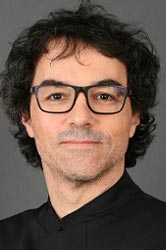
AACR Outstanding Investigator Award for Breast Cancer Research
Fabrice André, MD, PhD
This award recognizes an investigator whose novel and significant work has had or may have a far-reaching impact on the etiology, detection, diagnosis, treatment, or prevention of breast cancer. Such work may involve any discipline across the continuum of biomedical research, including basic, translational, clinical, and epidemiological studies. This Award is generously supported by the Breast Cancer Research Foundation.
André is being honored for his pioneering the field of precision medicine in breast cancer, implementing the concept of using real-time high-throughput genomics analysis of cancer biopsies to identify potential therapeutic targets, exploring the potential of multigene sequencing for clinical use, and championing the targeting of rare genomic alterations in cancer such as Alpelisib, a PI3K inhibitor. He was the first to describe the existence of tumor-derived exosomes in humans and elucidated the role of Interferon signaling and T helper cells in mediating chemotherapy response and as markers of chemotherapy sensitivity.
AACR Team Science Award
The Institute of Cancer Research and Royal Marsden Hospital Breast Cancer Research Team
This award recognizes an outstanding interdisciplinary research team for its innovative and meritorious science that has advanced or likely will advance our fundamental knowledge of cancer, or a team that has applied existing knowledge to advance the detection, diagnosis, prevention, or treatment of cancer.
The Institute of Cancer Research and Royal Marsden Hospital Breast Cancer Research Team is being honored for discovering new therapeutic approaches and the biomarkers that identify the populations of patients that gain the most benefit from them. Examples being PARP inhibitors, which have changed how patients and breast cancers with BRCA1/2 mutations are tested and treated, as well as development of aromatase inhibitors in estrogen receptor positive breast cancer and predictive biomarkers that have informed how systemic treatments may be selected, deescalated, or adapted following evidence of therapeutic response or resistance. This effective team has also led work that has fundamentally changed international radiotherapy dose fractionation to reduce treatment duration and characterized molecular changes occurring in breast cancer that contribute to metastatic colonization, resistance to cell death, and vulnerability to targeted therapies.
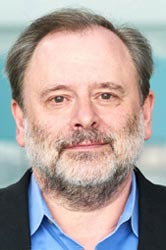

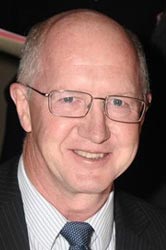



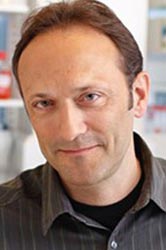

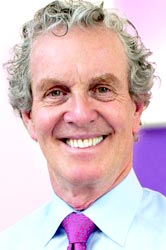


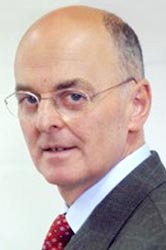
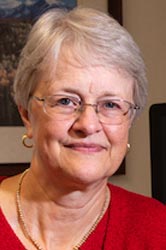
AACR-American Cancer Society Award for Research Excellence in Cancer Epidemiology and Prevention
Susan E. Hankinson, ScD
This award recognizes outstanding research accomplishments in cancer epidemiology, biomarkers, and prevention.
Hankinson is being honored for her remarkable contributions to the fields of cancer epidemiology, biomarkers, prevention, and the etiology of breast cancer, and for leading the first large-scale blood and urine collections in women for biomarker discovery utilizing a special biospecimen collection protocol that corresponded to specific times in women’s menstrual cycle. Her seminal work revealed profound insights on the association of sex hormones with breast cancer risk and has prompted the development of chemoprevention drugs in pre and postmenopausal women.
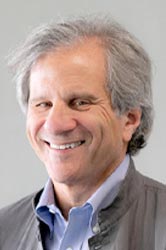
AACR-Cancer Research Institute Lloyd J. Old Award in Cancer Immunology
Ira Mellman, PhD, FAACR
This award recognizes an active scientist whose outstanding and innovative research has had a major impact on the cancer field and has the potential to stimulate new directions in cancer immunology.
Mellman is being honored for paramount advances in cell biology, including the discovery of endosomes, for applying these insights to understanding the immune response, and demonstrating how dendritic cell maturation regulates the balance between immunity and tolerance. He has elucidated the mechanism of the PD-L1/PD-1 signaling pathway and the conceptualization of the Cancer Immunity Cycle, bringing atezolizumab to the clinic, and overseeing the discovery and development of iNeST-RNA, tiragolumab (anti-TIGIT), cobimetinib, mosunetuzumab, and a variety of other therapeutics currently in earlier stages of clinical investigation.

AACR-G.H.A. Clowes Award for Outstanding Basic Cancer Research
Ronald M. Evans, PhD, FAACR
This award is intended to recognize an individual who has made outstanding recent accomplishments in basic cancer research.
Evans is being honored for elucidating the complete structure of the human glucocorticoid receptor, which led to the discovery of a nuclear receptor superfamily for steroids, vitamins A and D, thyroid hormone, bile acids, fatty acids, and cholesterol metabolites. An authority on hormones, he has identified a myriad of primary nuclear receptors as targets for the treatment of many cancers, including leukemia, lymphoma, breast cancer, prostate cancer, and pancreas cancer. Additionally, he has discovered a new class of PPAR delta drugs called exercise mimetics, which pharmacologically promote the benefits of fitness and thus have a broad impact in metabolic disease.

AACR-Irving Weinstein Foundation Distinguished Lectureship
Craig M. Crews, PhD
This award acknowledges an individual whose outstanding personal innovation in science and whose position as a thought leader in fields relevant to cancer research has the potential to inspire creative thinking and new directions in cancer research. The recipient is selected by the AACR President.
Crews is being honored for his excellence in drug discovery and development spanning from molecule to patient and his work on pharmacological modulation of protein turnover. Combining groundbreaking science with strong entrepreneurship, he has spearheaded new and revolutionary therapeutic approaches, including the development of novel proteasome inhibitors and proteolysis targeting chimera (PROTAC) technology, enabling the drugging of cancer targets previously considered undruggable.
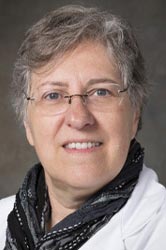
AACR-Joseph H. Burchenal Award for Outstanding Achievement in Clinical Cancer Research
Patricia M. LoRusso, DO, PhD (hc)
This award recognizes outstanding achievements in clinical cancer research.
LoRusso is being honored for her exemplary leadership in drug development and translational cancer therapeutics, and for her pioneering work on early phase clinical investigation of novel therapies and combination strategies for advanced cancers. Her unwavering and inexhaustible efforts in the design, conduct, analysis, and knowledge dissemination of early phase cancer clinical trials have created paradigm shifts in the treatment of cancer malignancies.
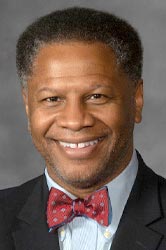
AACR-Minorities in Cancer Research Jane Cooke Wright Lectureship
Robert A. Winn, MD
This lectureship recognizes an outstanding scientist who has made meritorious contributions to the field of cancer research and who has, through leadership or by example, furthered the advancement of minority investigators in cancer research.
Winn is being honored for outstanding leadership and exceptional efforts in studying lung cancer, addressing health disparities, and promoting community-based health care; his important advances in identifying Wnt7a as a tumor suppressor in lung cancer, and for defining the role of Wnt7 in epithelial mesenchymal transition, cellular polarity, and DNA methylation. His work has unlocked enhanced understanding of “non-canonical” Wnt contributions to lung cancer development and uncovered several new targets such as y-catenin, Dishevelled, and PRMT1, currently being evaluated as novel drug targets to treat lung cancer.

AACR-Princess Takamatsu Memorial Lectureship
René Bernards, PhD, FAACR
This award recognizes an individual scientist whose novel and significant work has had or may have a far-reaching impact on the detection, diagnosis, treatment, or prevention of cancer, and who embodies the dedication of Princess Takamatsu to multinational collaborations.
Bernards is being honored for his monumental contributions to establishing innovative strategies by which to categorize biomarkers of treatment response and effective treatment combinations, for pioneering the use of genetic screening tests to identify and stratify individuals at risk of developing breast cancer, and for employing functional genomic approaches to identify vulnerabilities of cancers that may be therapeutically exploited. He is also recognized for his unparalleled ability to foster and nourish collaborative global cancer research efforts.
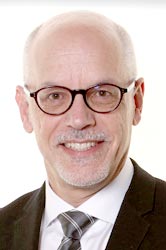
AACR-St. Baldrick’s Foundation Award for Outstanding Achievement in Pediatric Cancer Research
David Malkin, MD, FRCPC
This award recognizes an individual in any sector who has significantly contributed to any area of pediatric cancer research, resulting in the fundamental improvement of the understanding and/or treatment of pediatric cancer.
Malkin is being honored for his unrivaled, visionary, and paradigm-shifting holistic approaches to treating pediatric cancer, for discovering the link between germline mutations in the TP53 tumor suppressor gene and the Li-Fraumeni cancer susceptibility syndrome, and establishing the “Toronto protocol” for tumor surveillance in Li-Fraumeni Syndrome. He initiated the first childhood cancer predisposition clinic, which has served as the gold-standard for the management of families with cancer predisposition syndromes, while spearheading cancer genomic efforts, including sophisticated diagnostic, prognostic, and surveillance tools for the management of such patients.
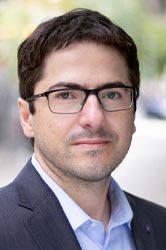
AACR-Waun Ki Hong Award for Outstanding Achievement in Translational and Clinical Cancer Research
Daniel D. De Carvalho, PhD
This award recognizes a worthy cancer researcher who has conducted highly meritorious translational and clinical cancer research anywhere in the world and who has not yet reached 51 years of age at the time of the award presentation.
De Carvalho is being honored for his groundbreaking work on the development and application of novel circulating tumor DNA methylome profiling approaches for cancer classification and early cancer detection, and for his pioneering discoveries concerning the epigenetic regulation of repetitive elements and downstream viral mimicry responses in cancer development and cancer therapy. He is also recognized for making the landmark discovery of the main antitumor mechanism of DNA demethylating drugs known as ‘viral mimicry.’
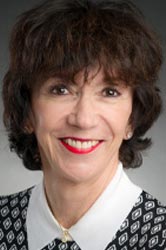
AACR-Women in Cancer Research Charlotte Friend Lectureship
Martine F. Roussel, PhD, FAACR
This award is presented to an outstanding scientist who has made meritorious contributions to the field of cancer research and who has, through leadership or by example, furthered the advancement of women in science.
Roussel is being honored for pivotal and enormous contributions to the understanding of childhood brain cancers, especially medulloblastoma, specifically highlighting how developmental pathways and cell cycle regulatory proteins, including cyclin dependent kinases and their inhibitors, are capable of regulating central nervous system function and brain tumor initiation and progression.
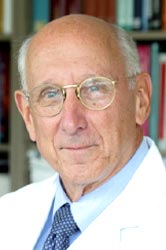
Pezcoller Foundation-AACR International Award for Extraordinary Achievement in Cancer Research
Steven A. Rosenberg, MD, PhD, FAACR
This award is presented to a scientist of international renown who has made a scientific discovery in basic or translational cancer research.
Rosenberg is being honored for pioneering the development of effective immunotherapies and gene therapies for patients with advanced cancers and being the first to introduce a foreign gene into a human and to successfully utilize T-cell receptors against melanoma and chimeric antigen receptors against lymphomas. He has identified somatic mutations as targets of T-cell immunotherapy and has demonstrated that administration of a combination of IL-2 and a lymphodepleting preparative regimen stimulates complete remission in metastatic melanoma.
The Victoria’s Secret Global Fund for Women’s Cancers Meritorious Awards, In Partnership with Pelotonia and AACR
These awards recognize five influential female researchers who have made pioneering contributions to the fundamental understanding and/or treatment of breast or any form of gynecologic cancer.
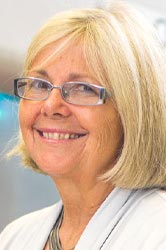
Joan S. Brugge, PhD, FAACR
Brugge is being honored for her lifelong investigations dedicated to unraveling mechanisms of cancer initiation, progression, and drug resistance that contribute to human carcinogenesis, her isolation of the protein encoded by the src transforming gene of Rous sarcoma virus, and the use of three-dimensional culture conditions to reveal significant changes in the organization of normal tissue associated with cancer. Adamant in identifying vulnerabilities of tumor cells that can be targeted for therapeutic intervention, her work has provided invaluable insights into therapy resistance mechanisms and has led to the development of numerous strategies for overcoming drug resistance.
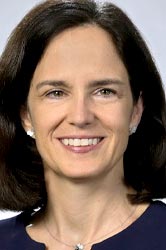
Susan M. Domchek, MD
Domchek is being honored for demonstrating that genetic testing for high penetrance cancer susceptibility genes can improve risk assessment, inform appropriate risk reduction strategies, and be used to develop targeted therapeutics; and for applying this paradigm to genetic information across the pathogenicity and penetrance spectrum. An international expert in the translation of genetic testing for cancer susceptibility, she has revolutionized the clinical care of patients in the areas of cancer prevention, early detection, and treatment, and has shown that prophylactic salpingo-oophorectomy decreases the risk of breast and ovarian cancer and is associated with improved survival in BRCA1 and BRCA2 mutation carriers. She has also been instrumental in the development of PARP inhibitors and immunologic therapies as potential treatments for BRCA1/2 mutation-associated cancers of multiple types, including breast, pancreas, and ovarian cancer.
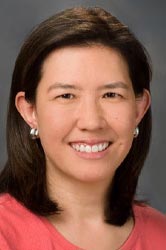
Karen H. Lu, MD
Lu is being honored for her fundamental studies of endometrial cancer in Lynch Syndrome and defining criteria to identify and medically manage women with Lynch Syndrome; and for leading efforts in the prevention of hereditary endometrial and ovarian cancers in Lynch Syndrome, the prevention of ovarian cancer in women with germline mutations of BRCA1 or BRCA2, and the prevention of sporadic endometrial cancer in obese women. Her innovative prospective national clinical trials have focused on the identification of tissue biomarkers and prevention of endometrial cancer in women with Lynch Syndrome, ovarian cancer screening in high-risk women, and use of the CA-125 algorithm for the early detection of ovarian cancer in low-risk women.
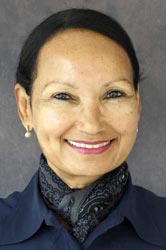
Lisa A. Newman, MD, MPH
Newman is being honored for significantly advancing the understanding of the etiology of breast cancers in African and African American women through her innovative and groundbreaking international program focusing on the study of triple-negative breast cancer in women with African ancestry. Her seminal work regarding the interplay of genetics and the social determinants of health continues to have a global impact as her findings become translated into better treatment options for all women with triple-negative breast cancers.
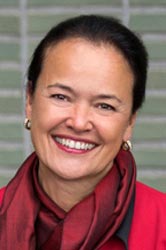
Martine J. Piccart, MD, PhD, FAACR
Piccart is being honored for her visionary and unparalleled leadership in breast cancer clinical trial- and drug-development, and for optimizing genetic profiling of breast cancer subtypes to enhance cancer diagnosis techniques and improve treatment strategies and regimens. Her paramount cancer research efforts have included the foundation of the Brussels-based Breast International Group (BIG) focused on fostering internationally collaborative clinical trials.
[sub-post-content]
